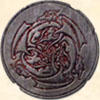Chapter 1 - Class - Character Kits - Thief Kits
Investigator
Though Investigators are listed as thieves, they are usually in fact theantithesis of criminals. Investigators are enforcers of law and order, the people who know
the skills of the thief intimately so that they can combat him.
Role: Investigators can play a number of roles. They may be private, their services for
sale. Or they may be employed by a government or organization. In each case their skills
and activities are similar, but their roles and attitudes may be divergent.
An Investigator may be a vigilante, obsessed with uncovering crime wherever it may
be hiding, and stopping it. Or he may be the "private eye," a mercenary sort, or retained
by an individual or organization, and may be willing to sidestep laws to better serve his
client.
Some Investigators are of course in the employ of some government. This does not
necessarily identify them as good, however. An Investigator may be portrayed as a sort of
"good guy cop," if it suits the campaign. But if the players are running thieves (especially
folk hero types), the Investigator could be sinister and evil, a perfect foil to the PC
thieves' capers.
The relationship between Investigator thieves and guilds is not usually that of allies.
An Investigator might be employed by a guild, however; though usually a Spy, or
perhaps a Troubleshooter, would do the guild's "investigating."
In fact, an Investigator might not even realize that he is employed by a guild, if his
ostensible employer is a "front" business. Interesting cloak-and-dagger-style adventures
could be built around an Investigator discovering, in the course of his work, that the
shadow he is following actually lurks behind his own employer.
And of course, Investigators ostensibly employed by the government, like other
magistrates and officials, sometimes "go bad," and are bought off by a guild, either for
information, or in exchange for a blind eye turned toward guild activities.
Secondary Skills: Any are possible, though it is not unusual for an Investigator to have
spent his entire adult life in this profession. Among the most useful secondary skills for
this kit are armorer, gambler, jeweler, limner/painter, scribe, trader/barterer, and
weaponsmith.
Weapon Proficiencies: Investigators are permitted the normal range of weapons open
to thieves. They will normally carry two weapons, at least one of them concealed (knife,
dagger, or something similarly small, perhaps in a wrist sheath).
Nonweapon Proficiencies: Required: Information Gathering, Observation.
Recommended: Alertness, Appraising, Disguise, Fast-Talking, Heraldry, Intimidation,
Local History, Modern Languages, Reading Lips, Religion, Trailing.
Skill Progression: A balance of generalized skills serves Investigators well. Picking
pockets is less important, of course, although you must remember that it may be useful
for sleight-of-hand, which may serve an Investigator. Read language skills are a must for
deciphering clues; some criminals write important information in obscure languages or
secret codes, and being able to decipher it may mean success or failure for the
Investigator. Other skills (lockpicking, trap detection and disarmament, and so on) are
useful for penetrating and examining the hideouts and houses of suspects.
Equipment: A lot of the technological devices available to the modern Investigator
(such as fingerprinting techniques, searches of computer databases for information, and
so forth) would of course not be available in the medieval fantasy setting. Still, it may be
possible to duplicate some of the effects of such devices with magical items; or the DM
can make liberal use of anachronism. Suppose Investigators are able to dust forfingerprints, for example. A magical device that identifies fingerprints might also exist,
allowing the Investigator to learn whose prints he has dusted.
Special Benefits: None.
Special Hindrances:'' None.
Races: Investigators may be of any race, though they probably should be of the
dominant race in their area of operation. A dwarf would probably be best at doing
investigative work in the dwarf-dominated quarter of a large city, for instance. This
means that most Investigators would be human (a reasonable enough assumption, since
human governments would be the ones to use them most frequently). Operations that
investigate guilds with many nonhuman members could of course make much use of
nonhuman Investigators.
